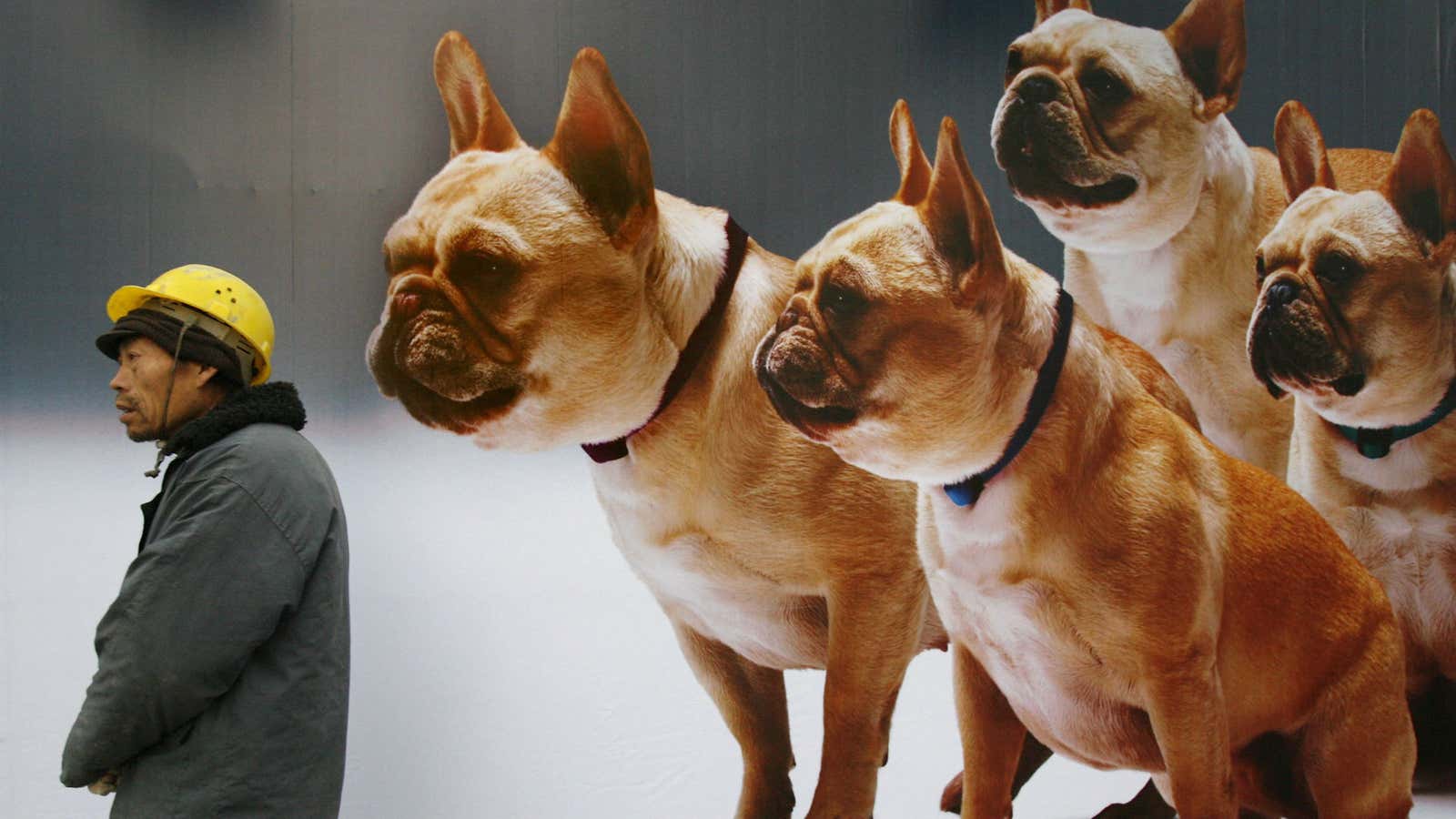A fast-growing Chinese biotechnology company is to build a cloning factory to copy dogs, cows, racing horses, non-human primates, and other animals, state news agency Xinhua (link in Chinese) reports.
The so-called “world’s largest cloning factory” (yes, there are several more) will include a cloning production line, a cloned animal center, a gene bank, and a science and education exhibition hall, Boyalife Group announced Nov. 22. It will be located in the city of Tianjin, which was the site of a deadly, costly industrial accident earlier this year, in the special development zone where the explosion was.
Production is expected to start in 2016, after a 200 million yuan ($31 million) investment. The first animal to come down the line will be Japanese cows, in an attempt to lower the price of high-quality beef in the Chinese market, Dr. Xu Xiaochun, chairman and CEO of Boyalife, told Chinese media (link in Chinese). “[We are] now promoting cloned cows and cloned horses to improve China’s modern animal husbandry industry,” Xu said.
The factory will be a partnership between a Boyalife subsidiary, two domestic research institutions, and Sooam Bitotech Research Foundation from South Korea. It’s not the first time Boyalife and the South Korean cloning company have cooperated. China’s first commercial cloning company is a joint venture between the two that was established last September in Weihai. The first creatures cloned there were three Tibetan mastiffs—a rare shepherd dog breed that can be sold for millions of dollars.
Sooam, the world’s leader in commercial dog cloning, has produced more than 550 cloned puppies since 2005. Anyone can get a genetic copy of a beloved dog—after paying $100,000 and sending a tissue sample of the original dog. But there isn’t any proof that a cloned working dog can perform as well as the original one in special tasks like explosives detection. And cloned pets may have totally different personalities.
Founded in 2009 in the Wuxi city of eastern Zhejiang province, Boyalife has grown into a genetics giant with 28 subsidiaries and operations in 16 provinces. Besides using cloning technologies to improve livestock breeding, the new cloning factory, will be “the world’s only” research institution to produce “disease models” of large animals, Xu said.
A “disease model” is an animal that is genetically engineered to be predisposed to a certain human disease for research purposes. BGI, a cloning company in Shenzhen, produces 500 cloned pigs a year, as “disease models” to test out new medicines.
